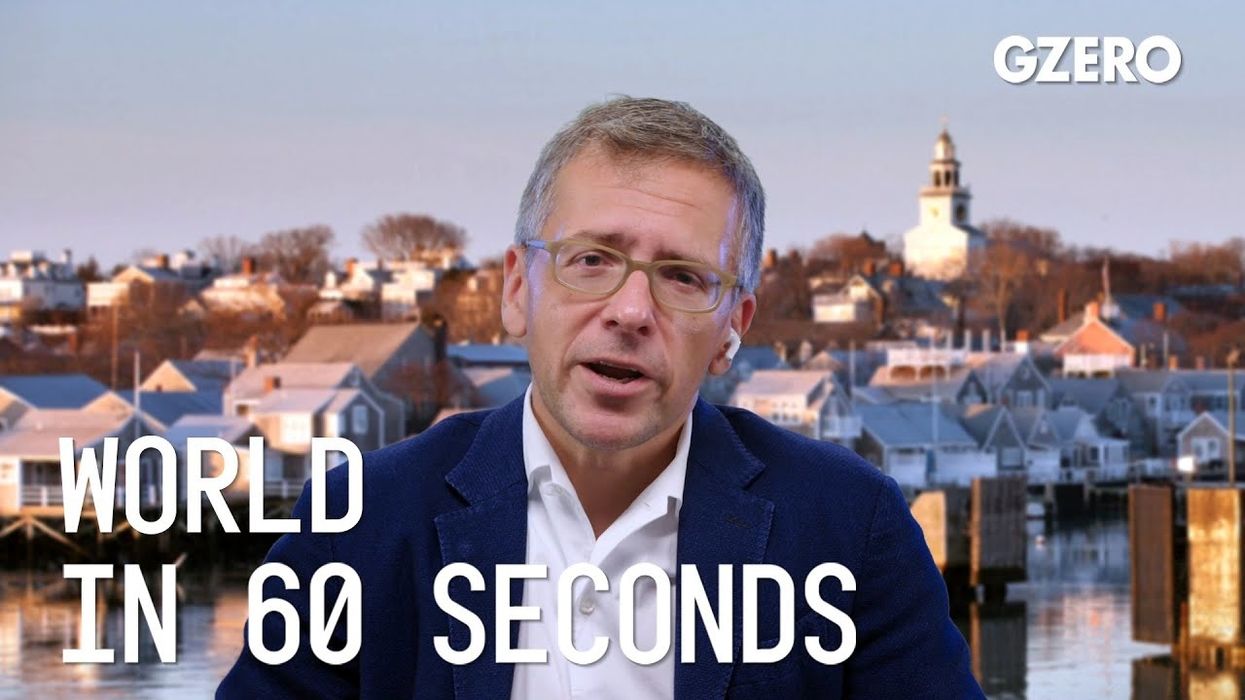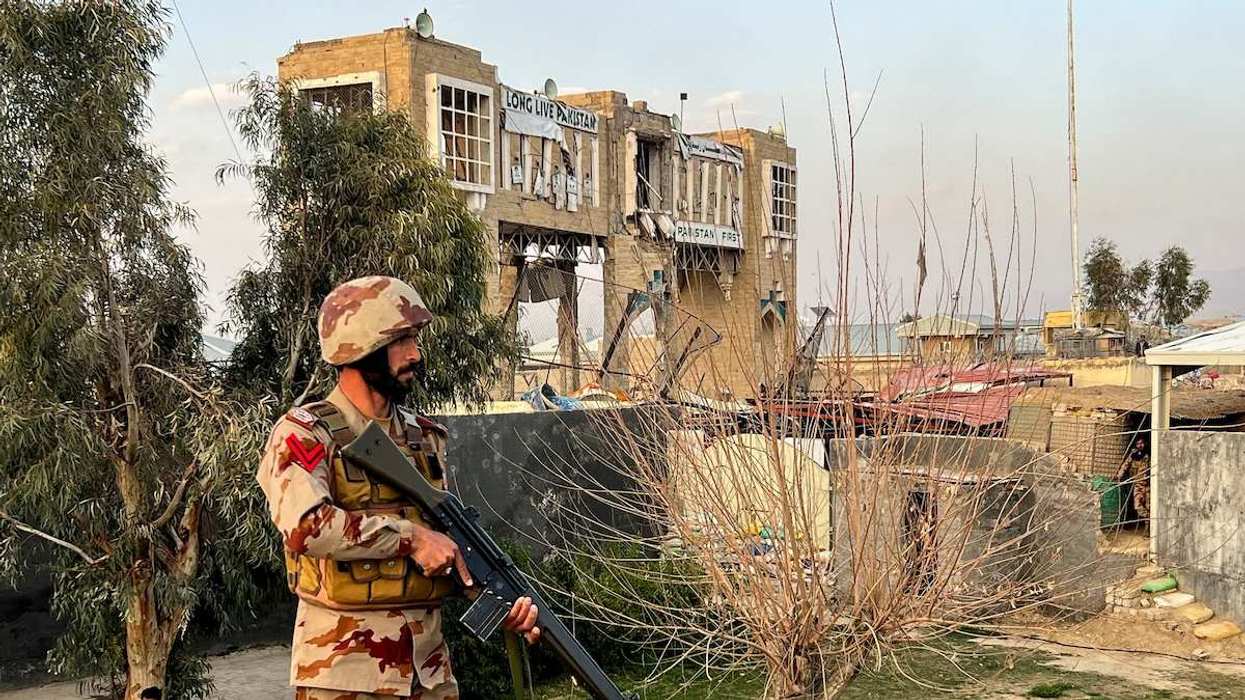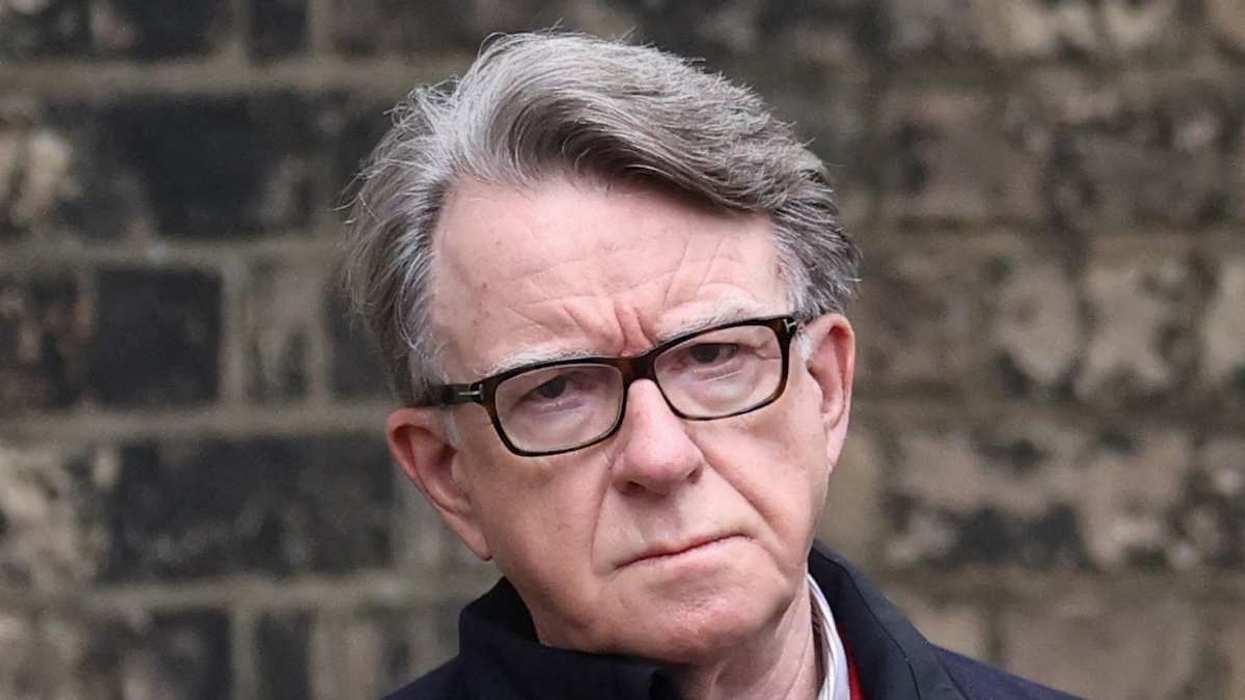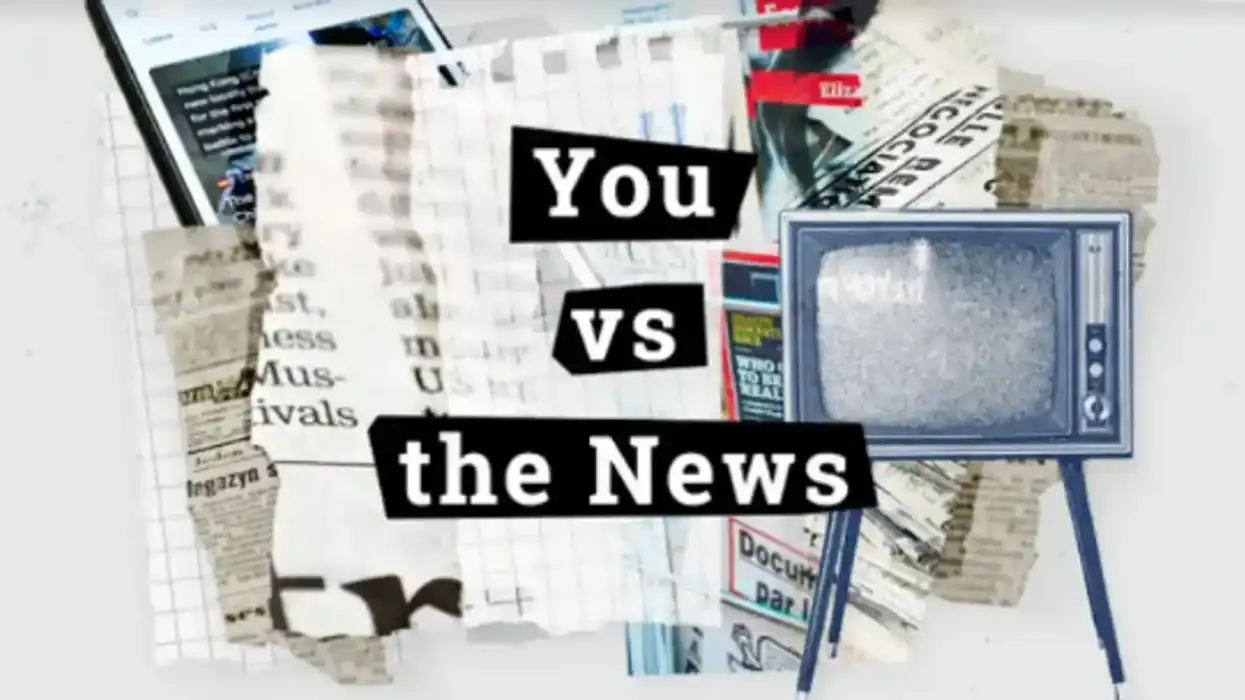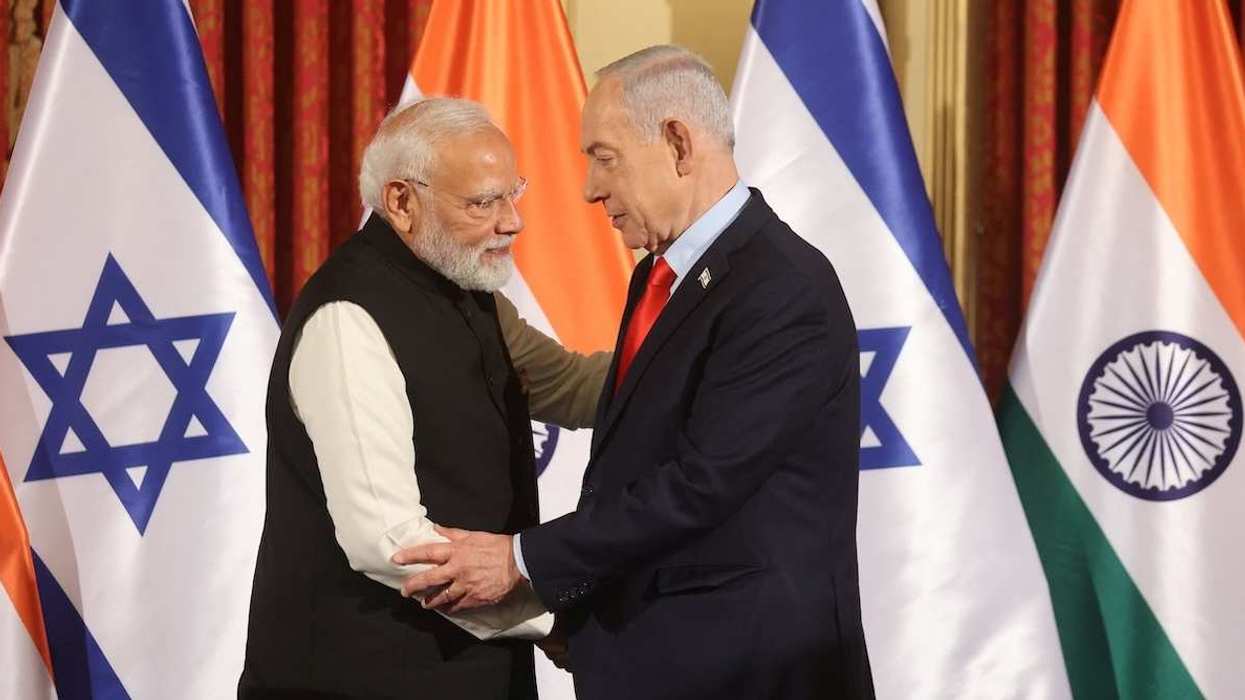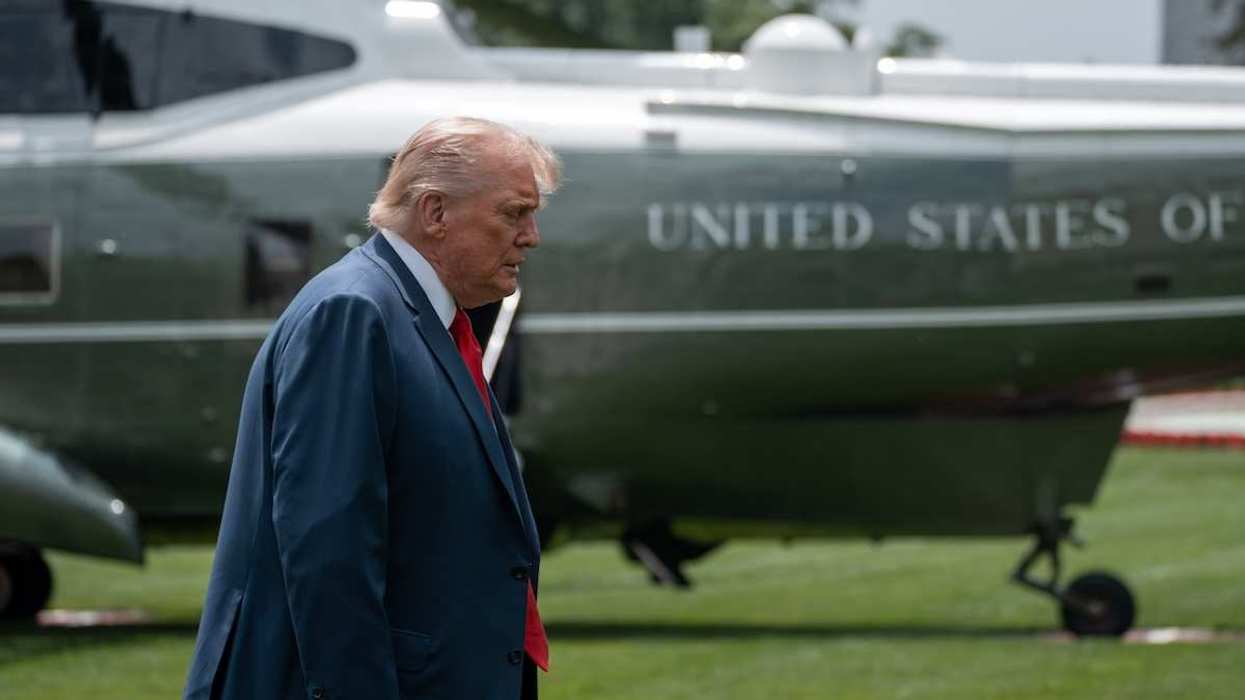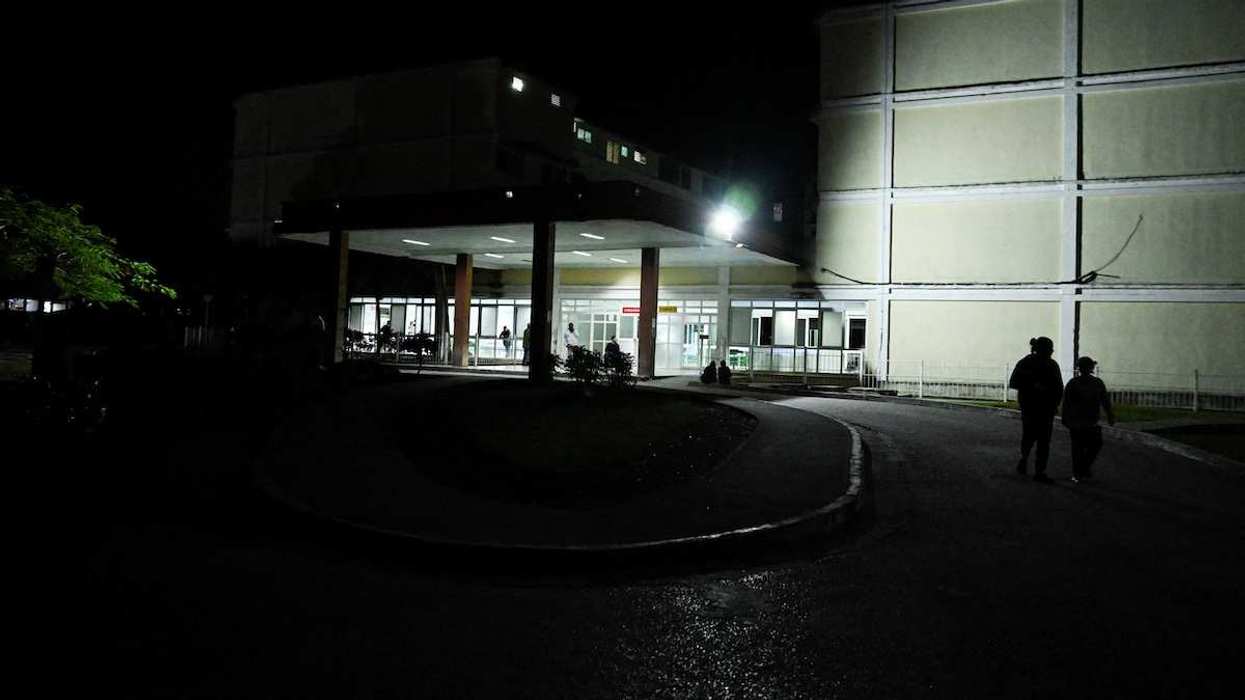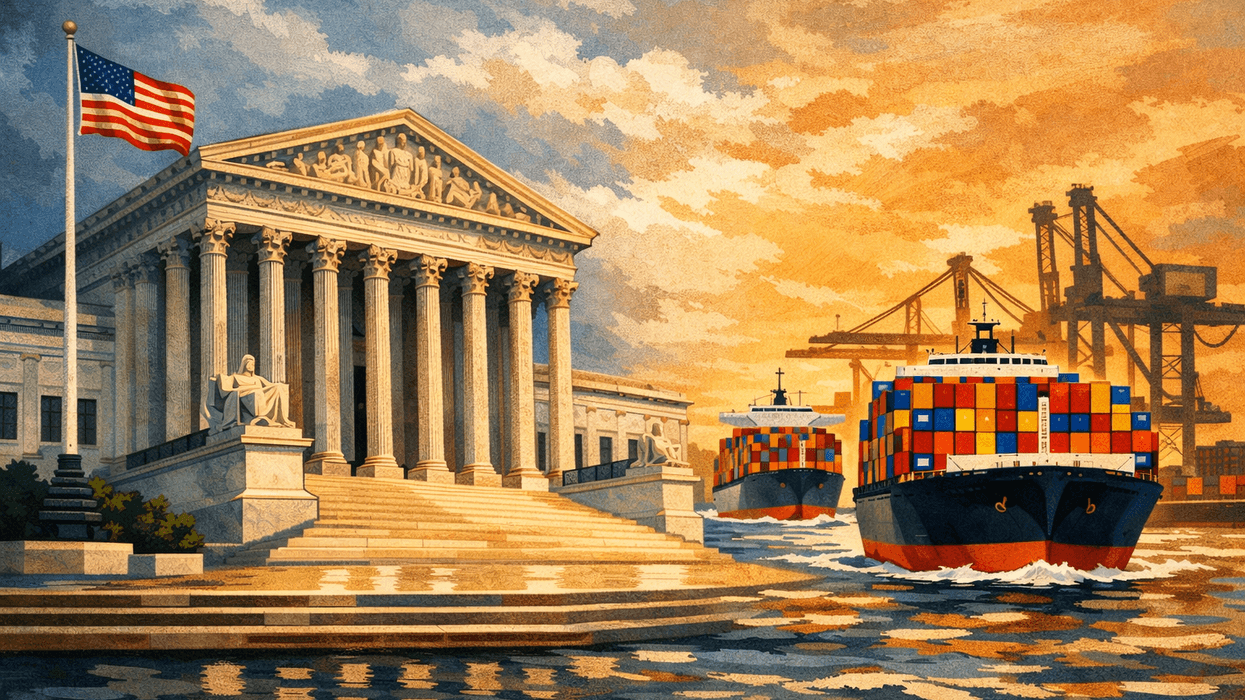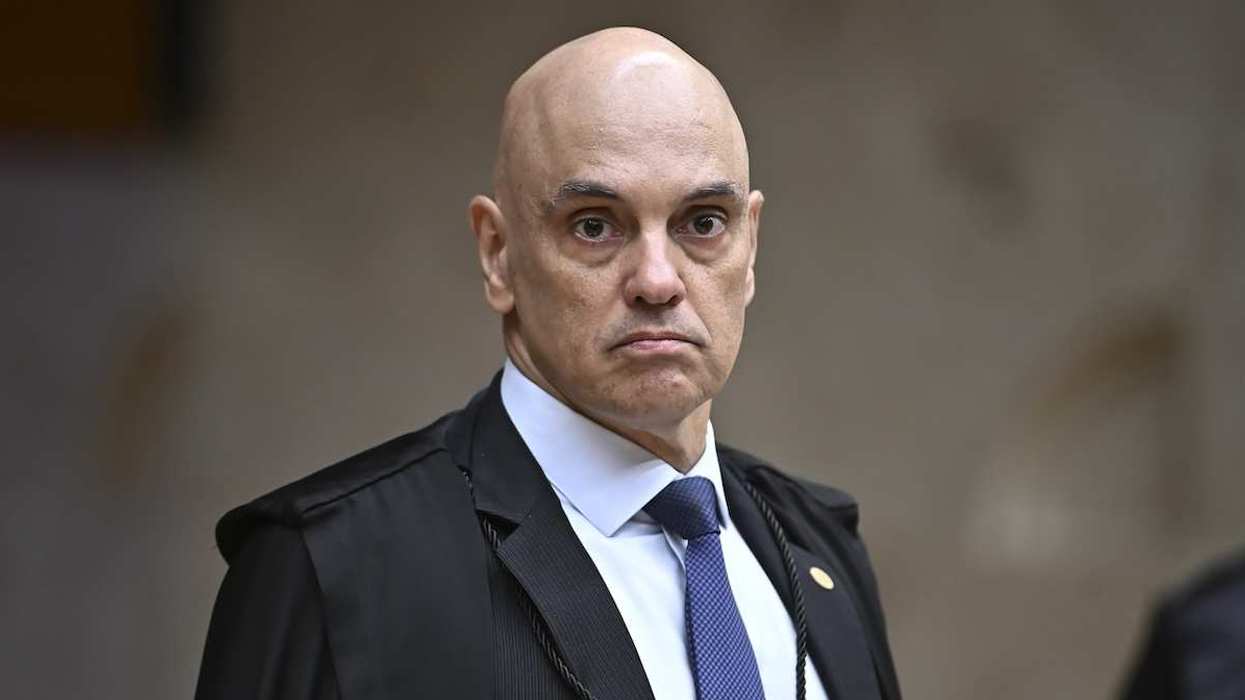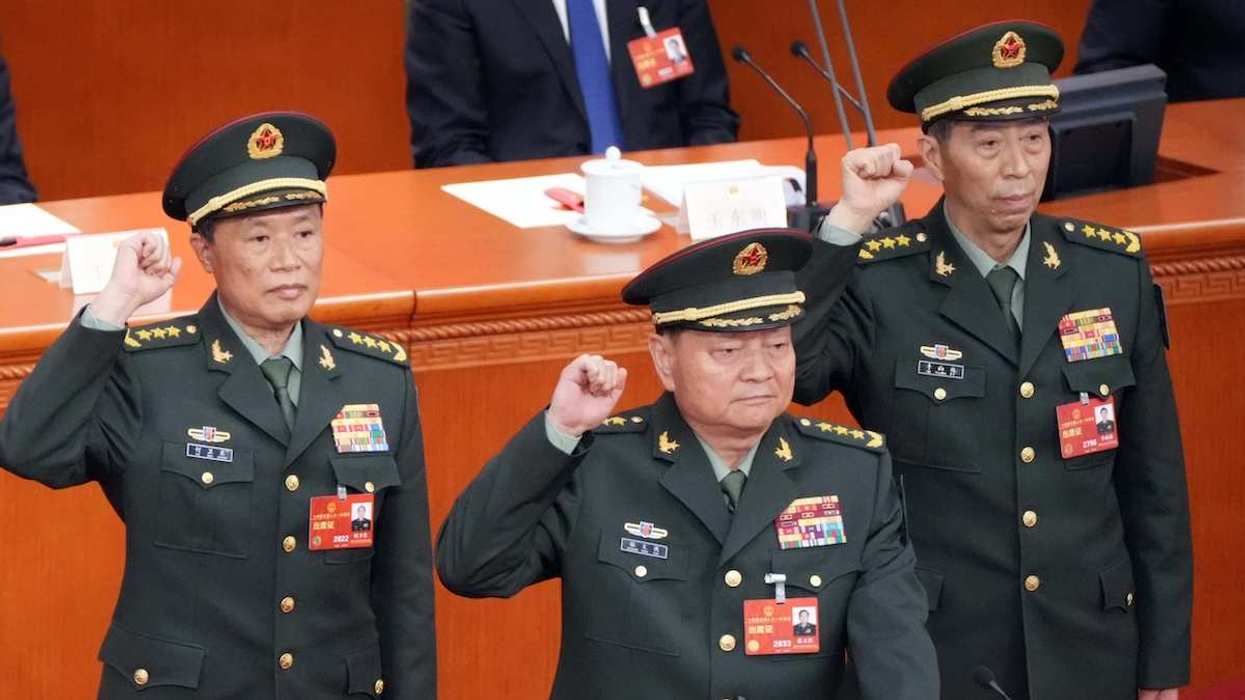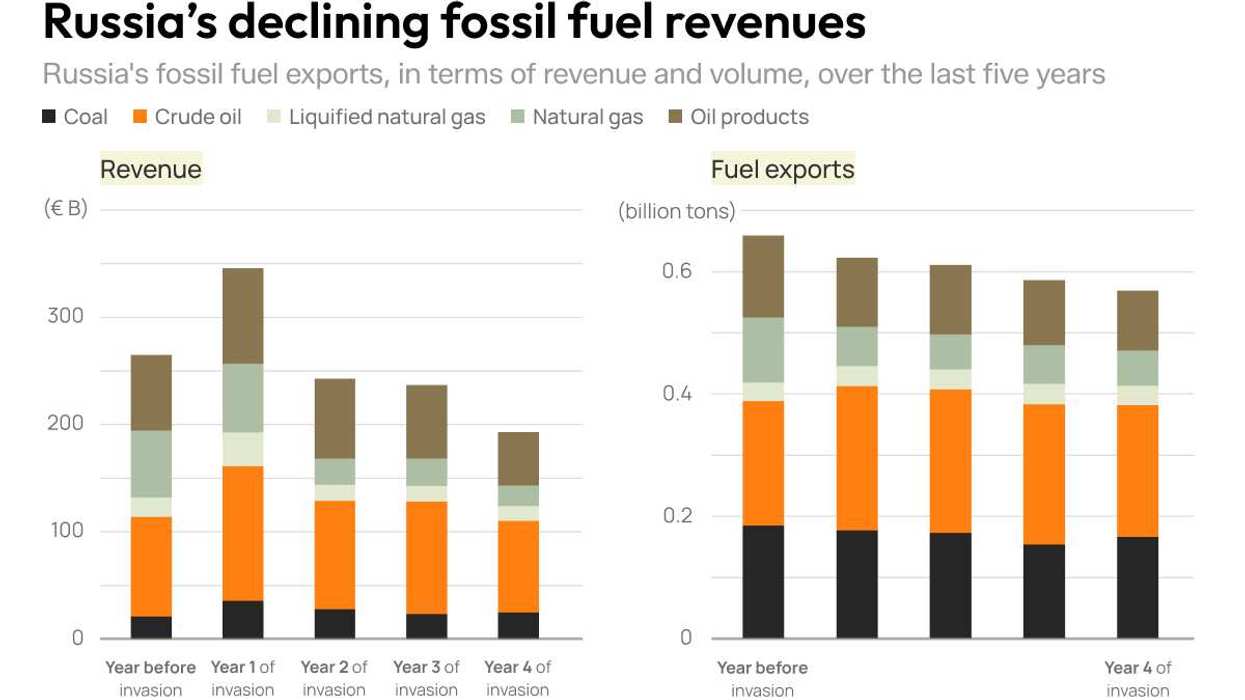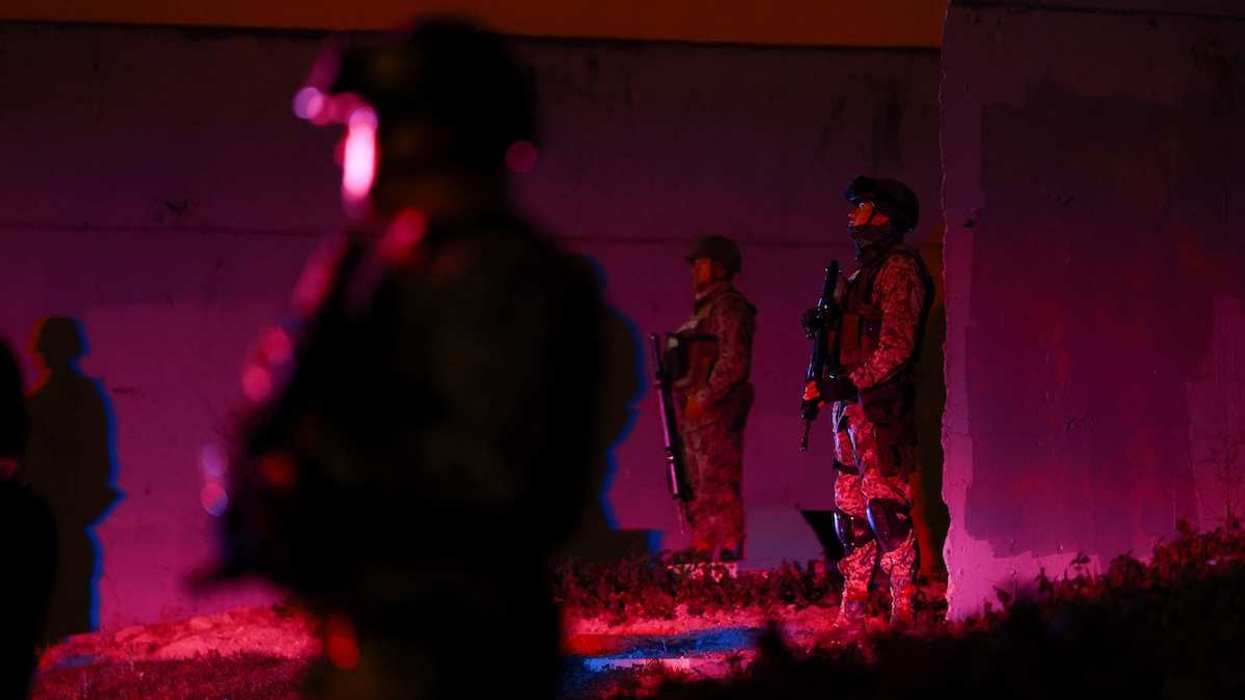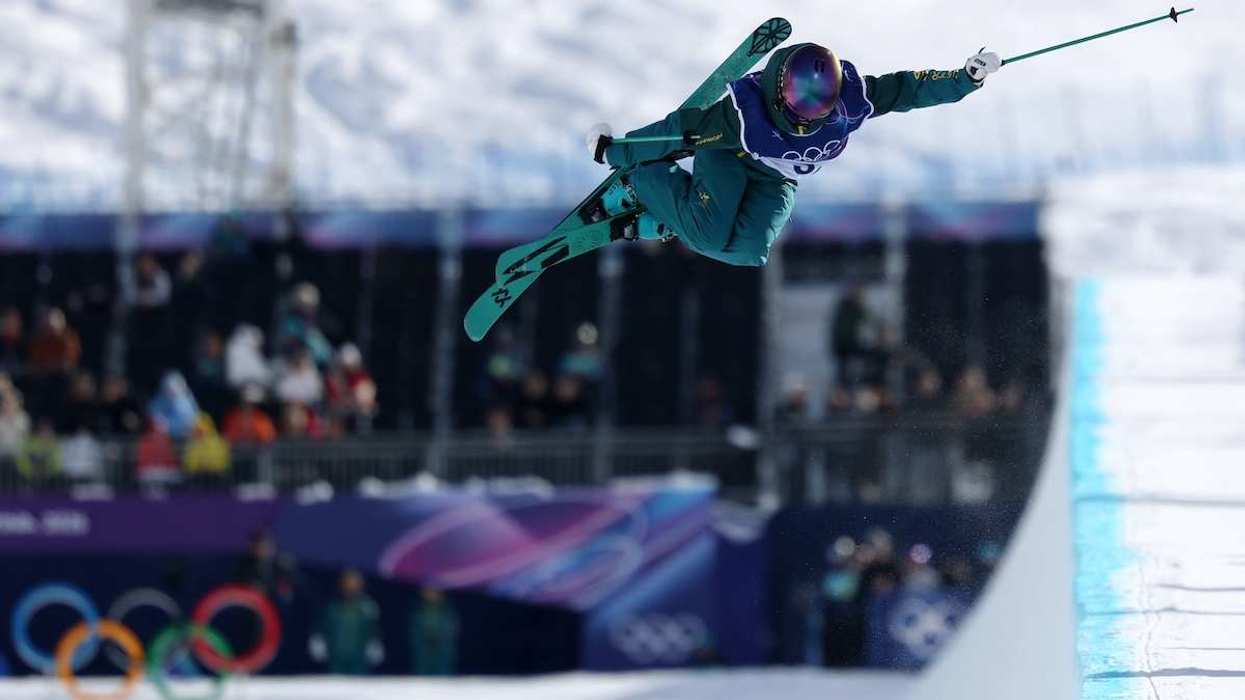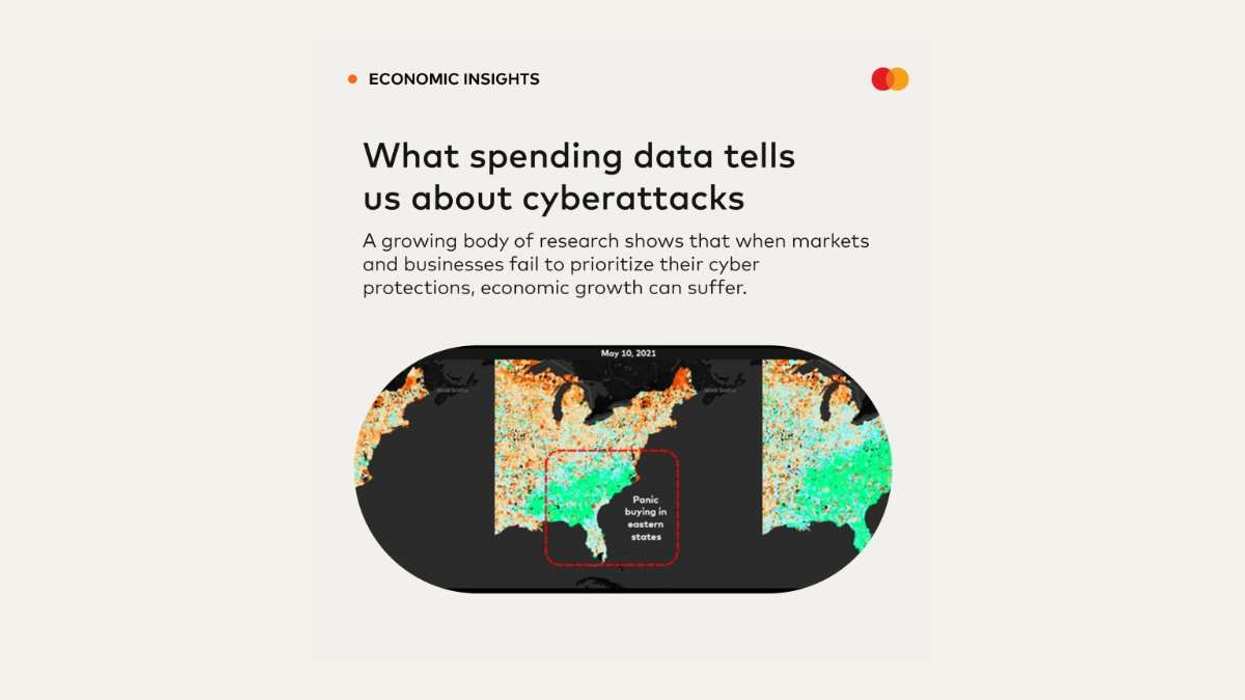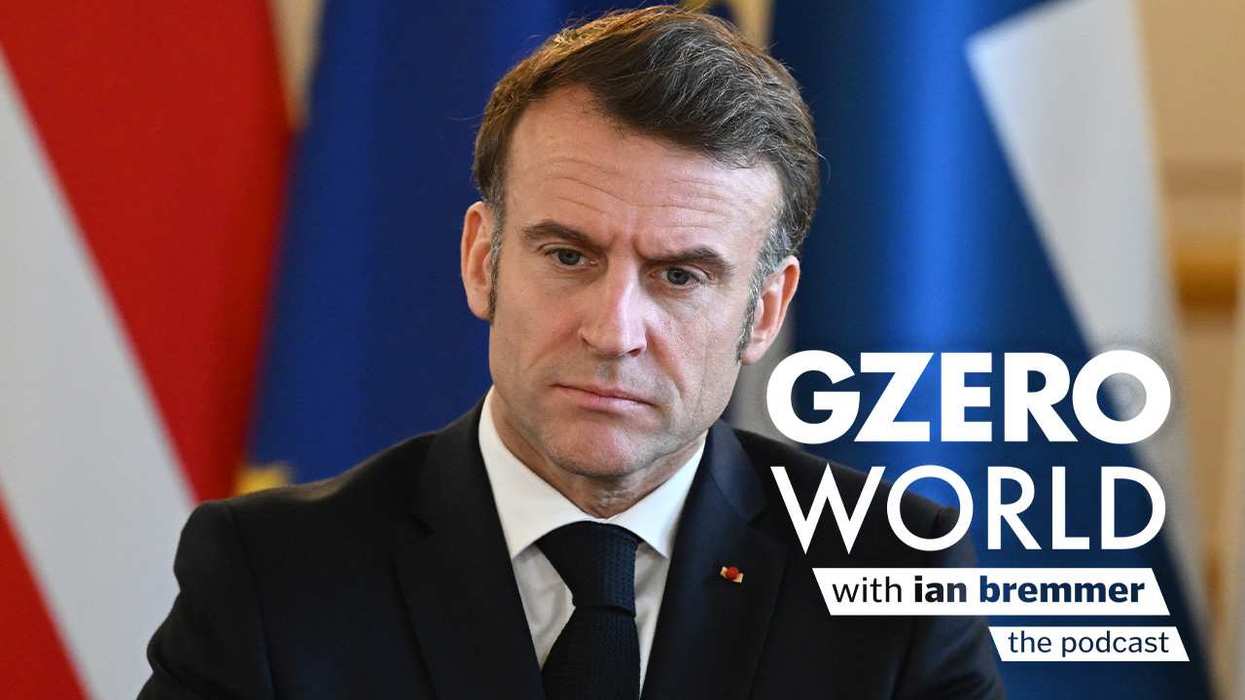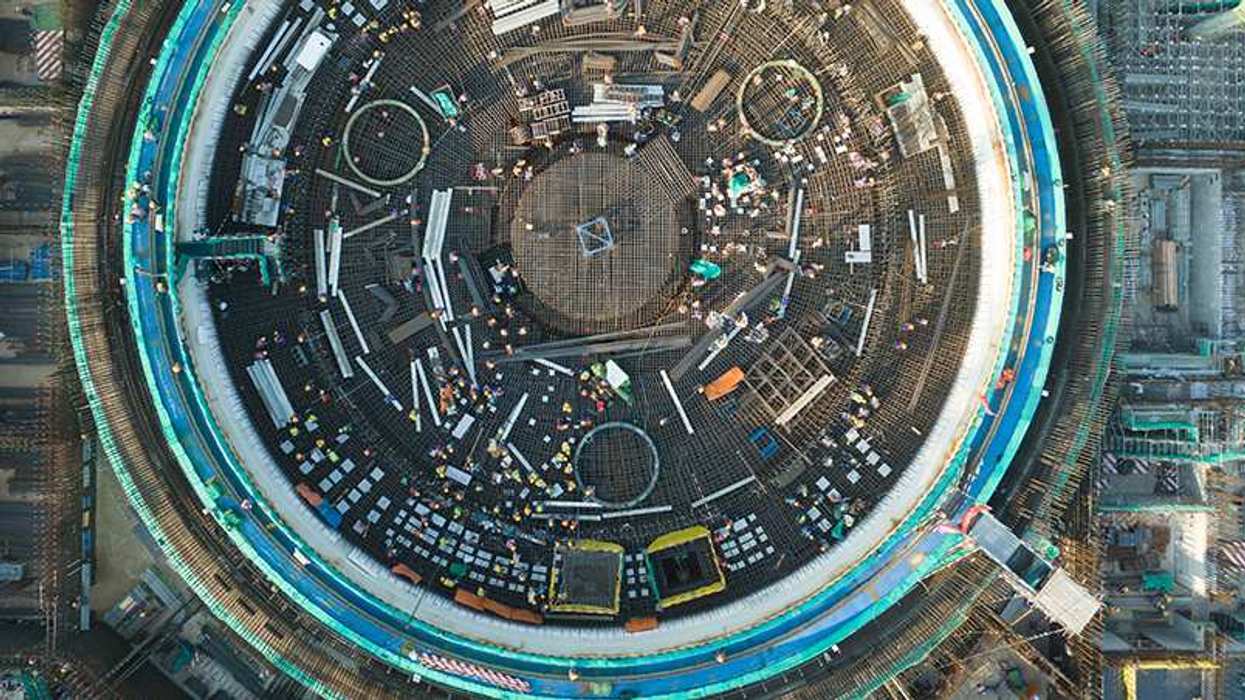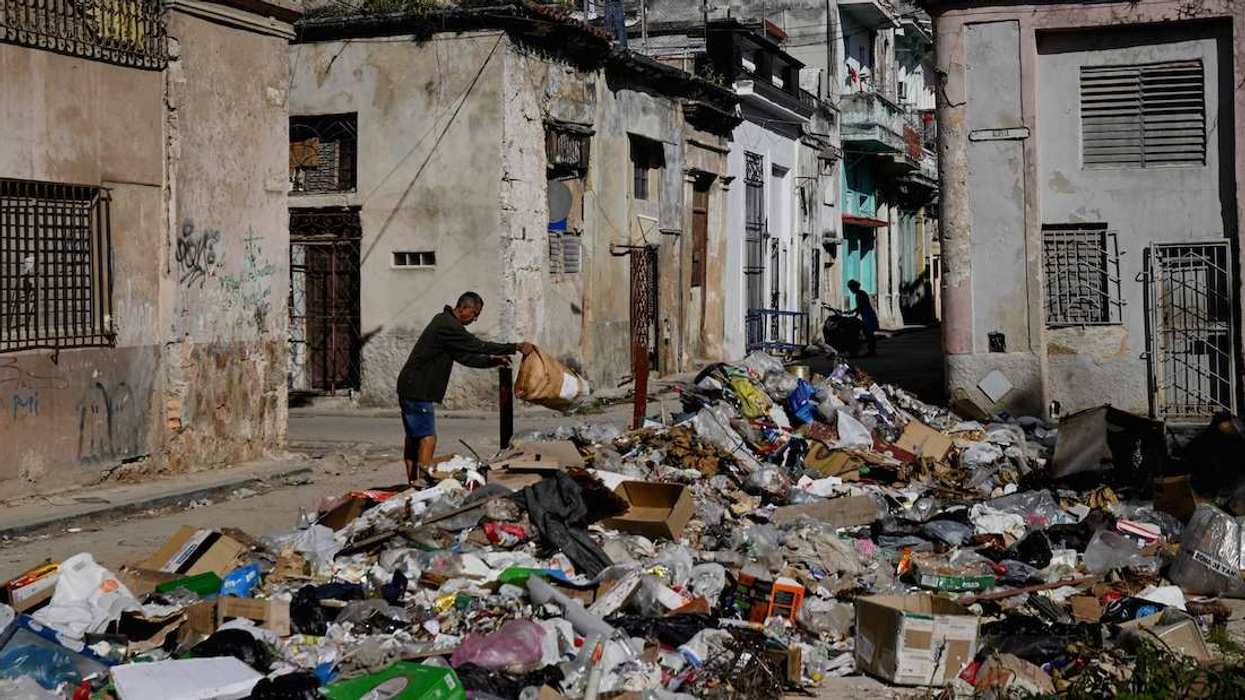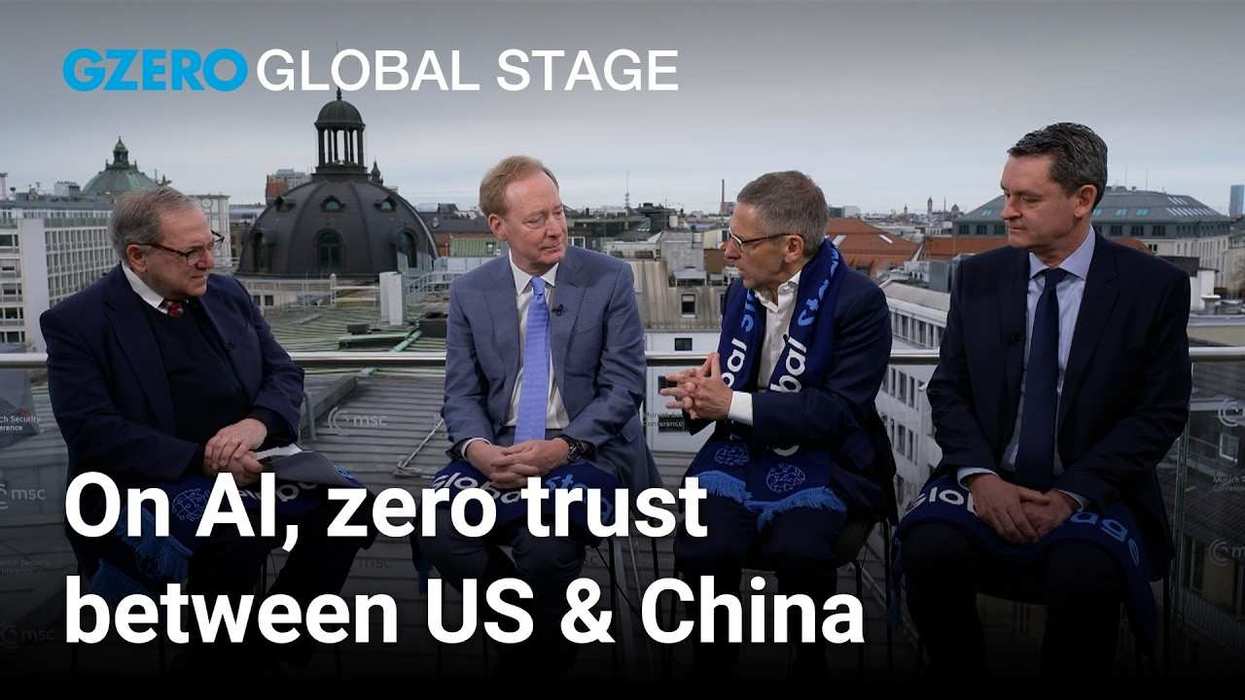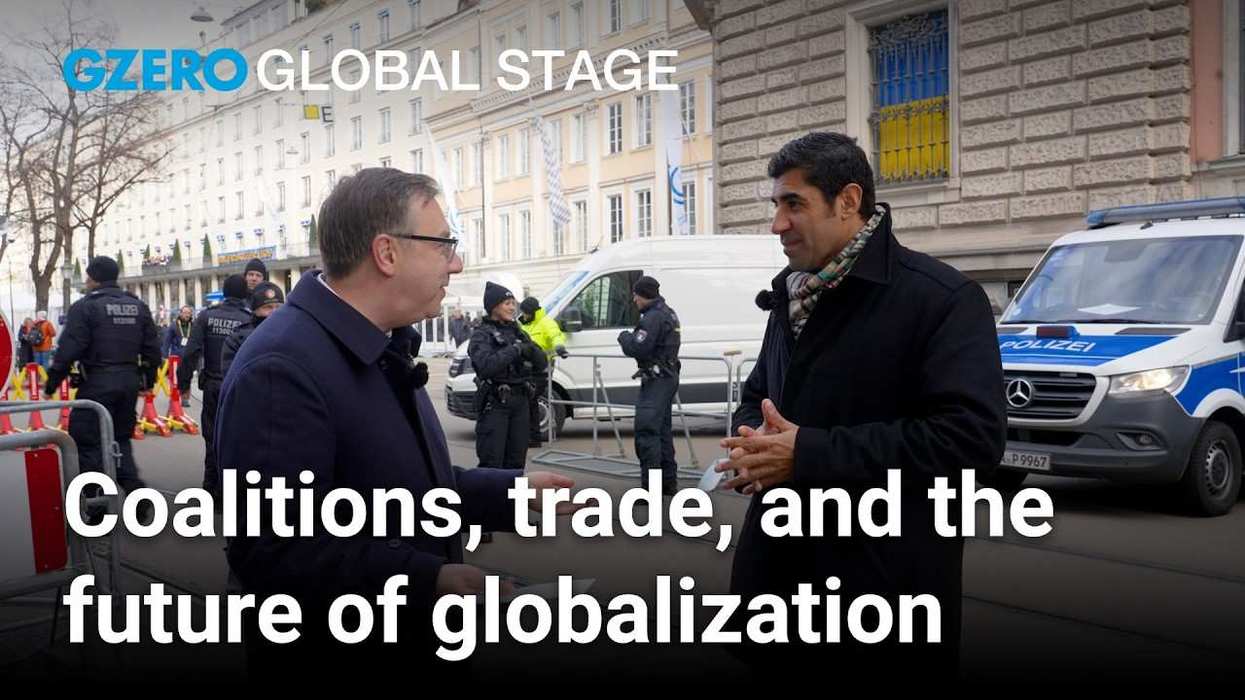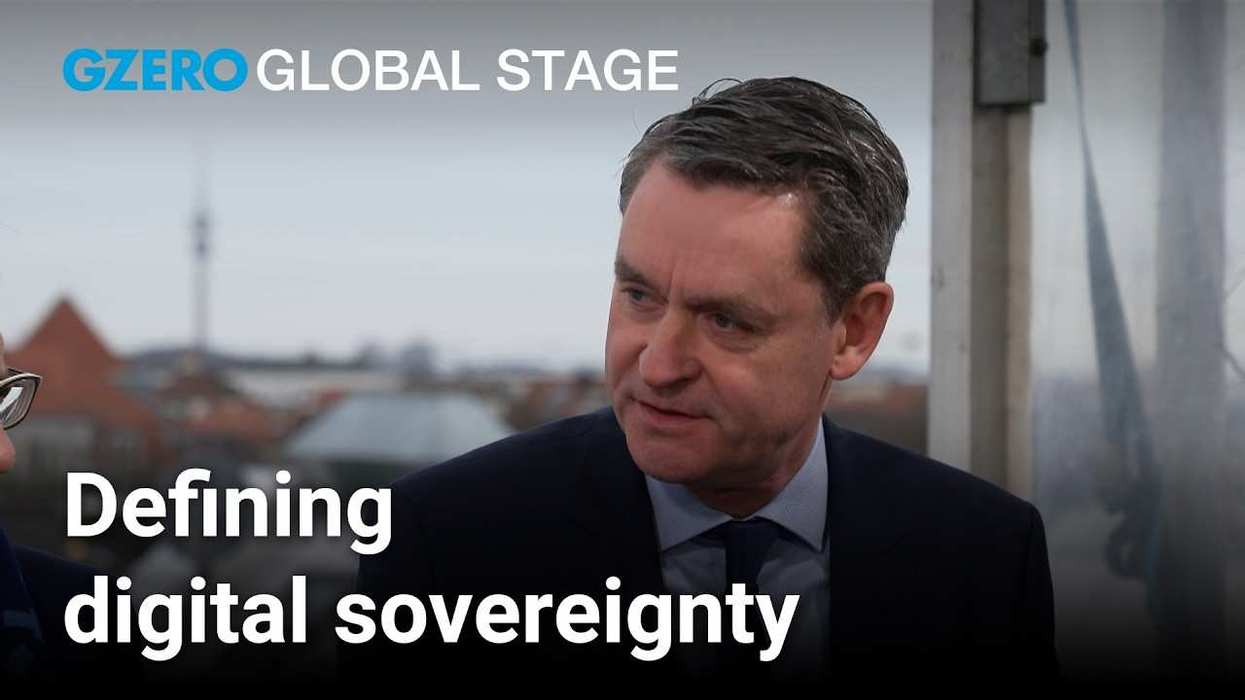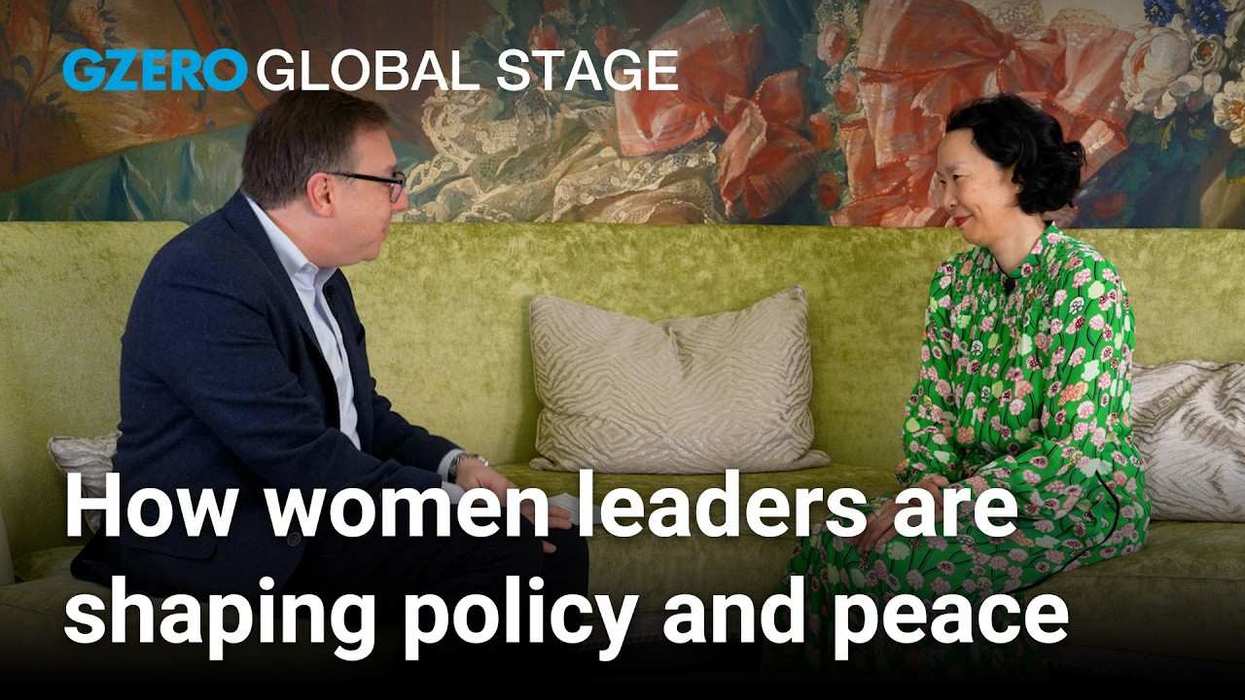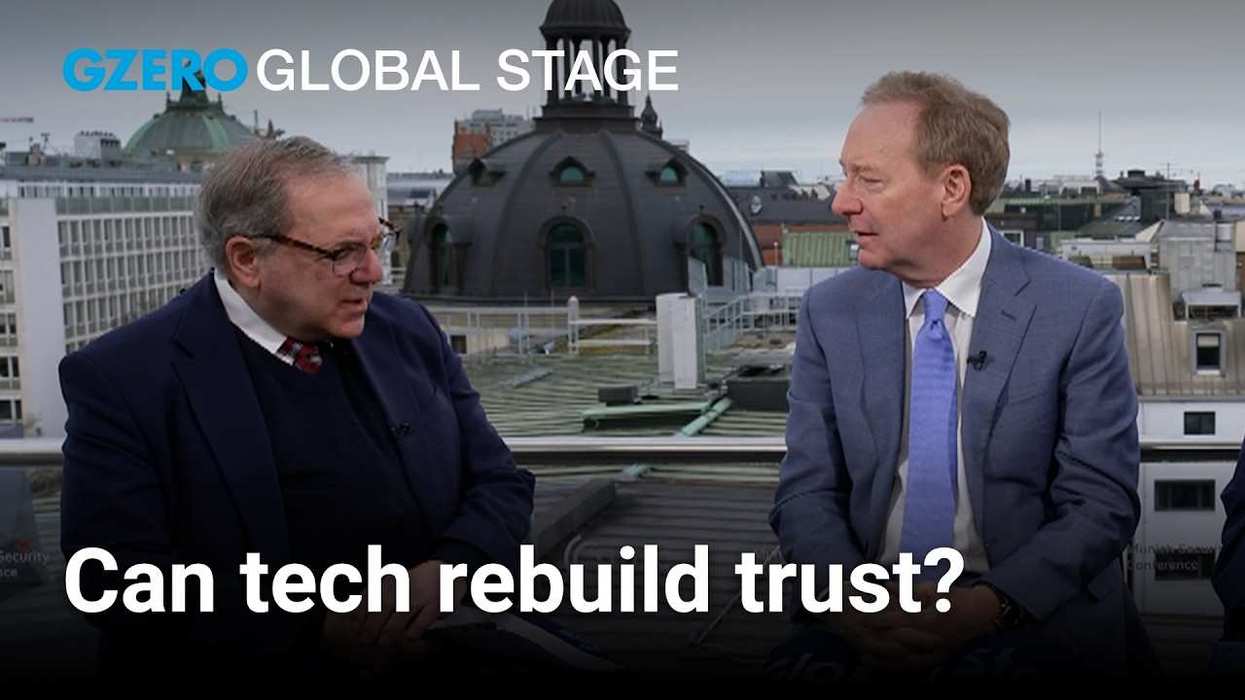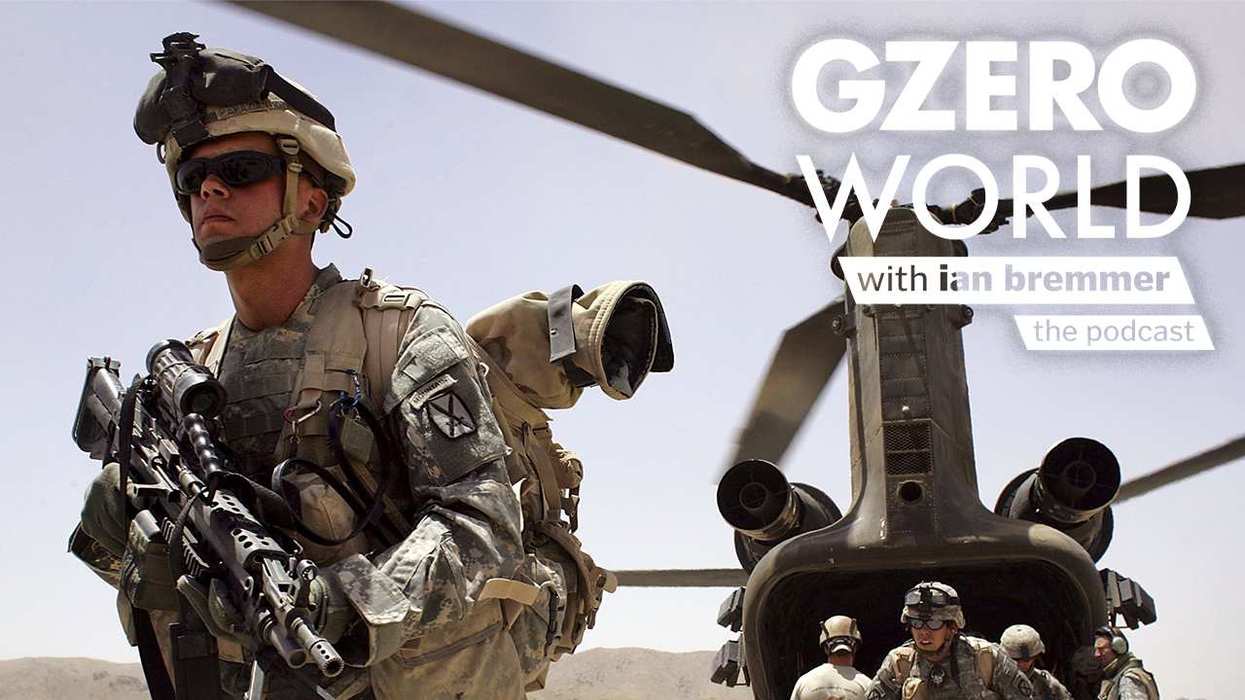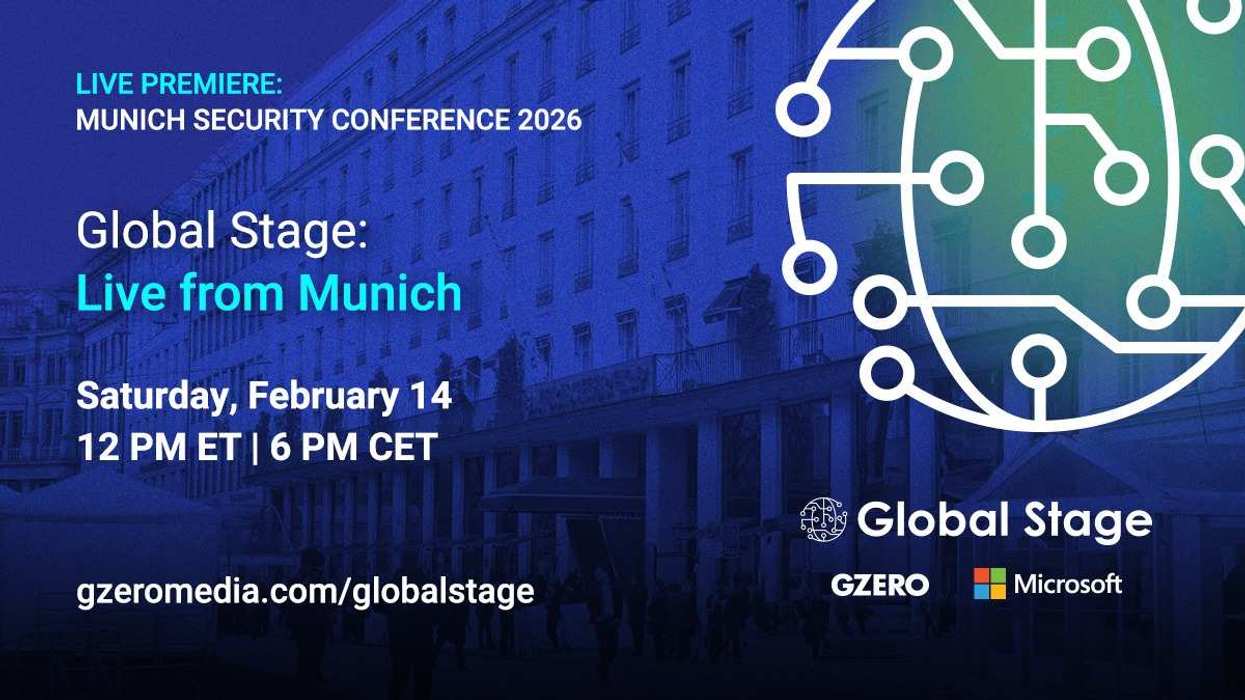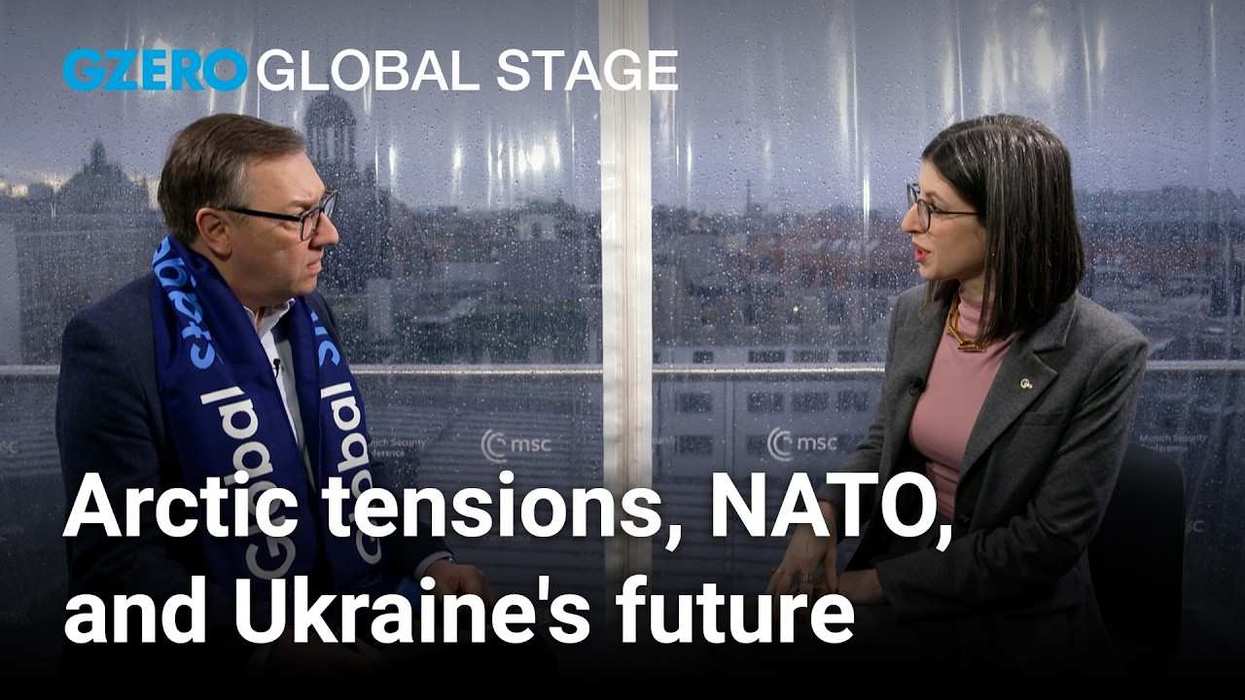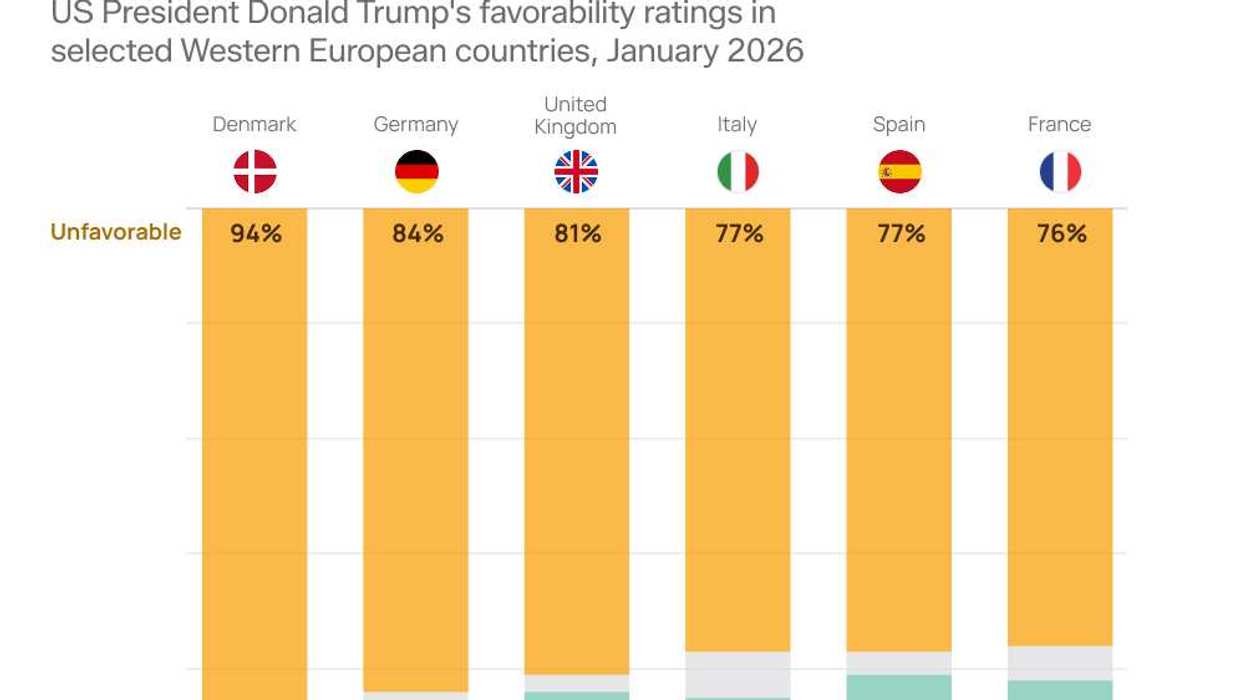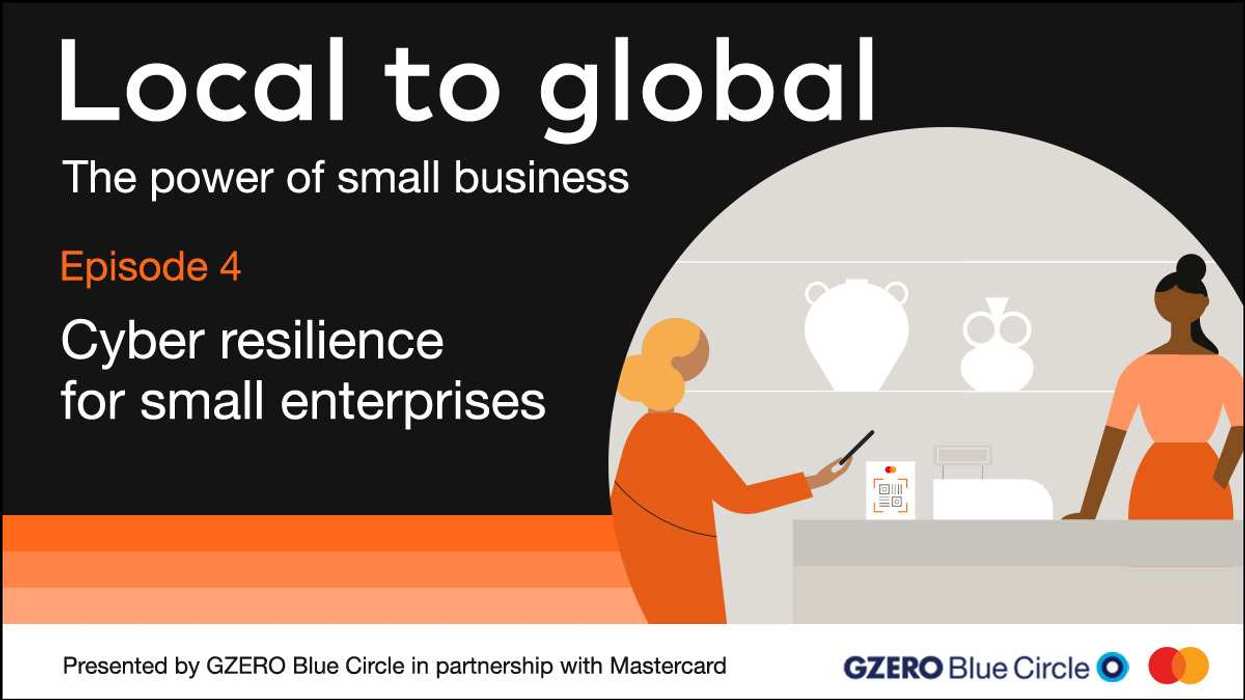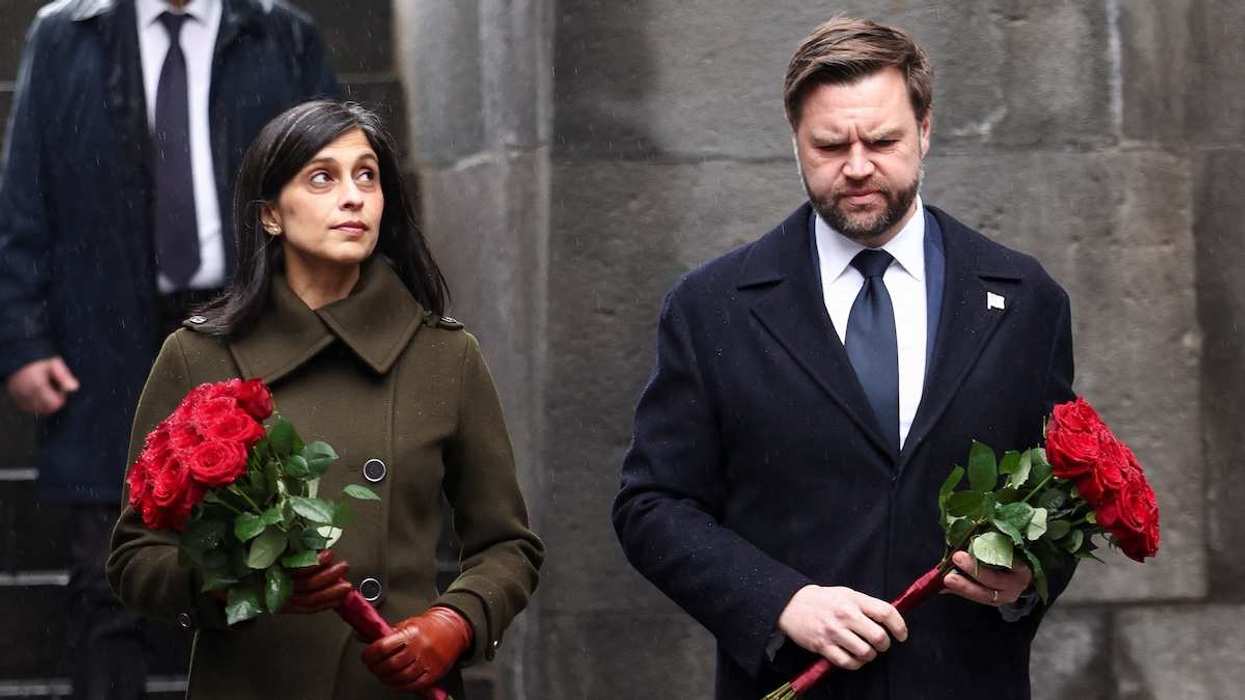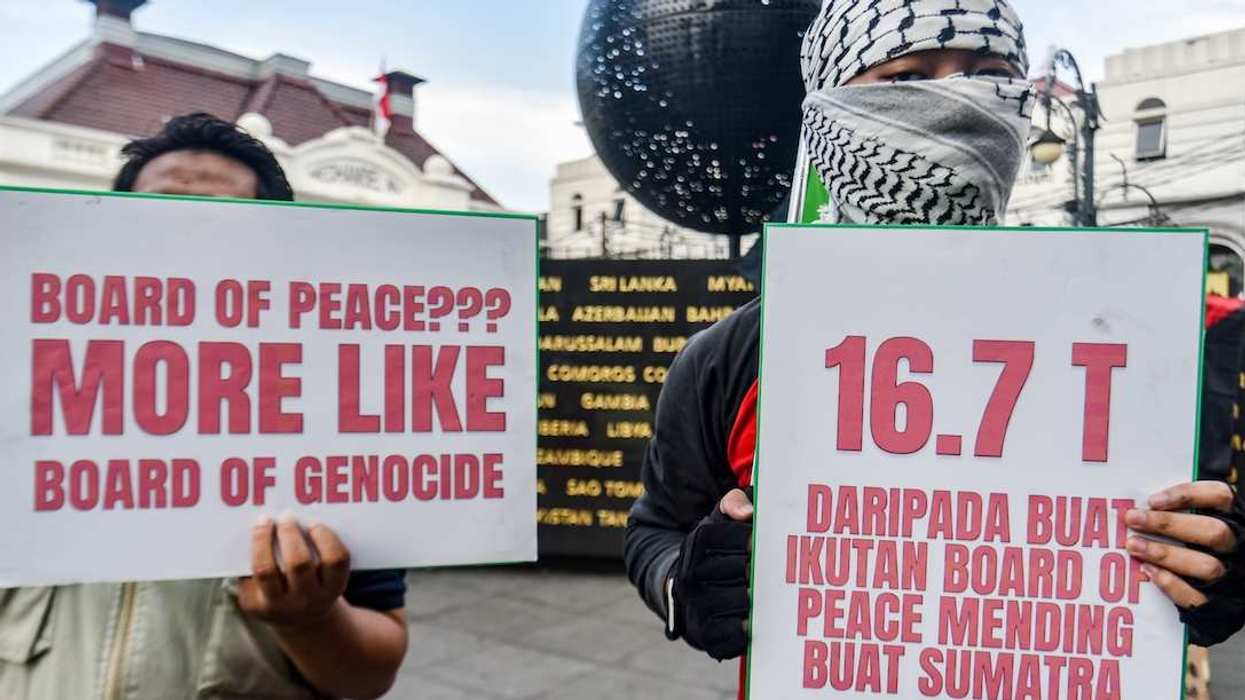VIDEOSGZERO World with Ian BremmerQuick TakePUPPET REGIMEIan ExplainsGZERO ReportsAsk IanGlobal Stage
Site Navigation
Search
Human content,
AI powered search.
Latest Stories
Sign up for GZERO Daily.
Get our latest updates and insights delivered to your inbox.
Global Stage: Live from Munich
WATCH RECORDING
Science & Tech
The geopolitics of science and technology: GZERO's news coverage and analysis of how scientific and tech developments impact the world's economy and society.
Presented by
Ian Bremmer shares his perspective on global politics on this week's World In (More Than) 60 Seconds:
The Lebanese government resigns. What's next for Lebanon?
Well, not a lot of money. They need billions. I mean, $3 billion minimum just to rebuild the damage from the explosion, plus the billions because their economy is in freefall, and their banking system sucks, and their sanitation system doesn't work, and they're massively corrupt. And the humanitarian UN conference has thrown a couple hundred million at them, but nowhere near the billions they need. That requires major reform, which is being demanded by the people, and the IMF, and President Macron, who's sort of taking the lead in trying to build some international support for Lebanon. But, you know, a lot of people have problems right now. A lot of people need help. And if the Lebanese government that finally comes together is not more effective at structural reform, which is super challenging in a place that's massively corrupt, well, they're not going to get a lot of money. So this is going to be borne on the backs of Lebanese people. The one thing I will say is it's hard to imagine Hezbollah getting stronger in this environment. They are seen as part of the problem. And maybe this helps shake loose both them and the Iranian influence, which does not help the Lebanese people at all over that country.
Next, what does Jimmy Lai's arrest mean for Hong Kong and the US-China relationship?
Oh, my God. Did you see Apple Media in Hong Kong? I mean, the Chinese are not kidding around. I mean, they sent hundreds of police to arrest him and many of his coworkers and partners and take all of their files, hard and soft, out of that office building. This is ostensibly because he's engaged in traitorous behavior with foreigners, God forbid, supporting the democracy movement of Hong Kong against mainland China. This new national security law is the end of the "one country, two systems" commitment that the Chinese government had made. They do not care. They are massively more economically powerful than Hong Kong. And if that means that Hong Kong can't serve as a global financial center anymore, so be it. It is leading to a lot more backlash against China from the United States, from the UK, from Australia, from a whole bunch of countries around the world. And Xi Jinping just doesn't care. I think there's a level of rally-around-the-flag nationalism that you're seeing in China. As you're seeing in the United States in terms of the recent Taiwanese visit by Secretary of Health and Human Services Azar, the highest level we've seen since 1979. As you've seen in major sanctions coming down against Xinjiang and against Chinese and Hong Kong officials, as well as against TikTok and WeChat. This relationship is getting a lot, a lot uglier.
After Lukashenko's election victory, what kind of change can protesters in Belarus expect?
Well, it's not a victory. The Washington Post is saying "it's a victory," too. I'm seeing all this mainstream press saying that Lukashenko won with 80% of the vote. No. It was illegitimate. They stole the vote. There were irregularities. Opposition members were jailed. The opponent of his has fled the country after being threatened and after being detained for seven hours, and her children, she's in Lithuania. Lukashenko is a dictator. He did not win legitimately. There's been lots of protests on the streets. There's been some violence. There's been a lot of attention from the government and from the army. And the opposition leader has said that she does not want anyone to protest, please go home. She fears for herself and her family's safety, but also fears for the country, because the willingness of the Belarus president to use violence against his people is clearly unchecked. And so, I mean, it's possible that you could get another colored revolution in Belarus the way you had in Ukraine or Georgia or the Kyrgyz Republic, but frankly, it's unlikely. And Lukashenko, one of the least effective, most incapable leaders in the entire former Soviet space, is getting his way in a system that has truly no rule of law.
Russia has a COVID vaccine. What's the story?
Well, they're calling it Sputnik five or Sputnik V, excuse me. It's a V, I'm going Roman numerals, but they're going to V for vaccine, V for victory, V for a Sputnik moment. That's right. The Russians have approved a vaccine for coronavirus. They say it works. They say they're only limited side effects. Putin says one of his daughters has actually taken it, but it hasn't gone through Phase 3 trials. Certainly, no advanced industrial democracy would in any way support it being taken by a broader population. We don't know how effective it is. We don't know the longer-term impact on the population in terms of side effects that can cause more damage than it actually resolves. A dangerous thing, the fact that the geopolitical environment is completely dysfunctional while we have this big crisis just shows you. I mean, what we want is the epidemiological community and governments working together to build vaccines that can be transparent with data that's shared for everyone all over the world. That's how you get out of this economic crisis. Instead, we've got vaccine nationalism with the Russians and Putin wanting to run a victory lap on the back of his own people. Not the first time he's done that, but perhaps the most dangerous. We'll see what happens going forward. But for now, the Russians are taking a vaccine that you would not want to wish on your friends or enemies.
Keep reading...Show less
More from Science & Tech
Puppet Regime
Feb 27, 2026
Were Epstein’s friends in high places his currency?
February 27, 2026
You vs. the News: A Weekly News Quiz - February 27, 2026
February 27, 2026
The US writes its own rules
February 26, 2026
What the Supreme Court’s tariff ruling really changed
February 25, 2026
What’s Good Wednesdays™, February 25, 2026
February 25, 2026
The foreign policy details Trump omitted
February 25, 2026
Quick Take
Feb 25, 2026
Small businesses at a crossroads
February 25, 2026
Walmart’s $1 billion investment is strengthening associate careers
February 25, 2026
Four years in: Ukraine war grinds on
February 24, 2026
Putin & Xi on Trump's Iran threats
February 24, 2026
Graphic Truth: Russia’s declining fossil fuel revenues
February 24, 2026
Explore the Trusted Tech Alliance
February 24, 2026
Daalder: "A ceasefire is not in the interest of Ukraine"
February 24, 2026
Has US–Iran diplomacy reached its end?
February 23, 2026
Has social media reached a tipping point?
February 23, 2026
How cybercrime is becoming a threat to economic growth
February 23, 2026
How Europe is moving on from Trump's America
February 23, 2026
NATO, Trump, and Europe’s wake-up call with Ivo Daalder
February 21, 2026
Ian Explains
Feb 20, 2026
Supreme Court blocks Trump’s tariff power
February 20, 2026
India’s AI power play
February 20, 2026
You vs. the News: A Weekly News Quiz - February 20, 2026
February 20, 2026
The man at the center of the Board of Peace
February 19, 2026
Venezuela cracked. Will Cuba follow?
February 18, 2026
ask ian
Feb 18, 2026
What’s Good Wednesdays™, February 18, 2026
February 18, 2026
Meet Puppet Regime’s puppet master
February 18, 2026
Graphic Truth: Is government making peoples' lives worse?
February 18, 2026
Nuclear is back on the global agenda
February 18, 2026
Walmart’s $1 billion investment is strengthening associate careers
February 18, 2026
Global technology leaders launch Trusted Tech Alliance
February 18, 2026
Can we rebuild the Internet for democracy?
February 17, 2026
Two Americas on display in Munich
February 17, 2026
Froman: The world is "adjusting" to Trump's tariff power
February 17, 2026
President Trump against the world
February 16, 2026
Ian Bremmer: The US–China AI space has “Zero Trust”
February 15, 2026
Why countries are picking their own alliances
February 15, 2026
What does “sovereign cloud” really mean?
February 15, 2026
The power of women leaders in global decision-making & peacebuilding
February 14, 2026
NATO’s new normal: “We may not be at war, but we’re not at peace”
February 14, 2026
Challenges facing the transatlantic relationship
February 14, 2026
Can tech rebuild trust?
February 14, 2026
President Trump's power-first foreign policy with CFR's President
February 14, 2026
How the US went from global cop to king of the jungle
February 13, 2026
Hard Numbers: Valentine’s Day Edition
February 13, 2026
US-Iran talks: Are strikes inevitable?
February 13, 2026
You vs. the News: A Weekly News Quiz - February 13, 2026
February 13, 2026
Are we in an era of "wrecking ball politics?"
February 12, 2026
Munich Security Conference: Can Europe defend itself without the US?
February 12, 2026
Graphic Truth: Where risk is heating up the fastest
February 12, 2026
Graphic Truth: Europe isn't loving Trump
February 12, 2026
US government to fund MAGA-aligned groups in Europe
February 12, 2026
Zelensky agrees with Trump on need for elections
February 12, 2026
Cyber resilience for small enterprises
February 12, 2026
Sanae Takaichi has the power to change Japan
February 11, 2026
Post-Gen Z revolution, where does Bangladesh go next?
February 11, 2026
What’s Good Wednesdays™, February 11, 2026
February 11, 2026
Football wins, local economy scores
February 11, 2026
Walmart’s $1 billion investment is strengthening associate careers
February 11, 2026
Building community-first AI infrastructure
February 10, 2026
GZERO Series
GZERO Daily: our free newsletter about global politics
Keep up with what’s going on around the world - and why it matters.
